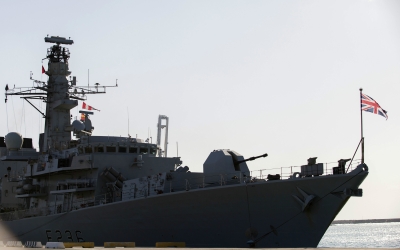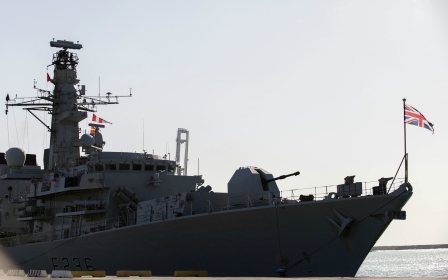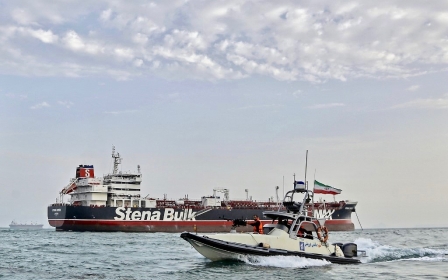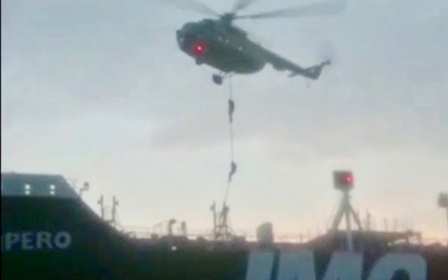Iran to Oman: Neighbouring states have made talks impossible amid tanker crisis
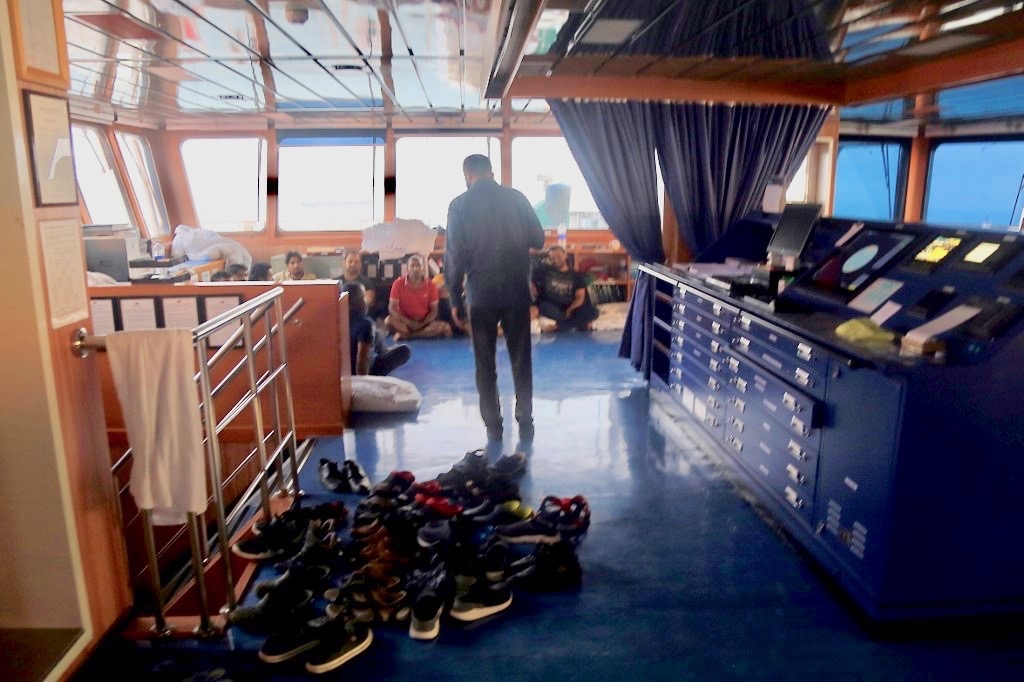
Iran's neighbouring states have made talks impossible through their "hasty and arrogant moves", a top security official told Oman's chief diplomat in Tehran on Saturday amid a tanker crisis.
Oman, a sometime mediator between Iran and its foes, sent its minister in charge of foreign affairs, Yusuf bin Alawi, to the Islamic republic amid amplified tensions between Iran and the US and its allies in the Gulf.
"Some of the region's countries have not only removed the possibility of talks because of hasty and arrogant moves and behaviour, but have also made managing regional crises a serious challenge," said Rear Admiral Ali Shamkhani, secretary of Iran's Supreme National Security Council, as quoted from the website of Iran's state television by AFP.
Shamkhani, who spoke after meeting with bin Alawi, also hit out at a British plan for a European coalition to escort tankers in the Gulf.
New MEE newsletter: Jerusalem Dispatch
Sign up to get the latest insights and analysis on Israel-Palestine, alongside Turkey Unpacked and other MEE newsletters
"Security measures for the region must use local capabilities and cooperation between regional countries, and foreign countries' interference will achieve nothing but increase problems," he said.
Britain has sought to assemble the mission in the Strait of Hormuz, used by tankers carrying about a fifth of the world's oil, following Iran's seizure of a British-flagged ship in what London said was an act of "state piracy", Reuters reported.
The initiative has won initial support from Denmark, France and Italy, senior diplomats said earlier this week.
Tensions in the Gulf have soared since last year when US President Donald Trump withdrew from a landmark 2015 nuclear deal with Iran and reimposed sanctions on the country.
In retaliation, Iran said in May it would disregard certain limits the deal set on its nuclear programme and threatened to take further measures if remaining parties to the accord, especially European nations, did not help it circumvent US sanctions, especially on its oil exports.
Since late April, when the Trump administration ended waivers on eight countries that allowed them to continue to buy Iranian oil, Tehran’s exports have dropped to about 300,000 barrels a day from more than a million previously.
Its economy has shrunk by 6 percent, and its currency has lost 60 percent of its value over the past year, according to CNBC.
Tensions have escalated further in the region with a string of incidents involving tankers and drones.
The US and Gulf powerhouse Saudi Arabia accused Iran of being behind multiple attacks on tankers in the Gulf in June, which Iran denies.
On 19 July, a British-flagged tanker was impounded by Iran's Revolutionary Guards with its 23 crew aboard in the Strait of Hormuz.
The owners of Stena Impero said on Saturday that Indian, Russian and Philippine embassy officials met crew members from their respective countries and reported that they were in good health, Reuters said.
"We hope this situation can be resolved swiftly and will continue to hold an open dialogue with all involved governments and authorities to secure the release of the crew and vessel," Stena Bulk and Northern Marine Management said in a statement.
Iranian tanker
The seizure was seen by London as a tit-for-tat move for British authorities detaining an Iranian tanker off the UK overseas territory of Gibraltar in early July.
Shamkhani called on all countries to "respect international maritime law in order to maintain security".
"In contrast to the British maritime piracy, who illegally detained an Iranian oil shipment in Gibraltar, Iran's move was completely legal and was made in order to implement maritime rules and maintain maritime security," he said.
Bin Alawi also held talks with Iran's foreign minister, Mohammad Javad Zarif, in Tehran on Saturday.
Oman has called for the release of the UK-flagged Stena Impero and for London and Tehran to resolve their dispute diplomatically.
Middle East Eye delivers independent and unrivalled coverage and analysis of the Middle East, North Africa and beyond. To learn more about republishing this content and the associated fees, please fill out this form. More about MEE can be found here.


